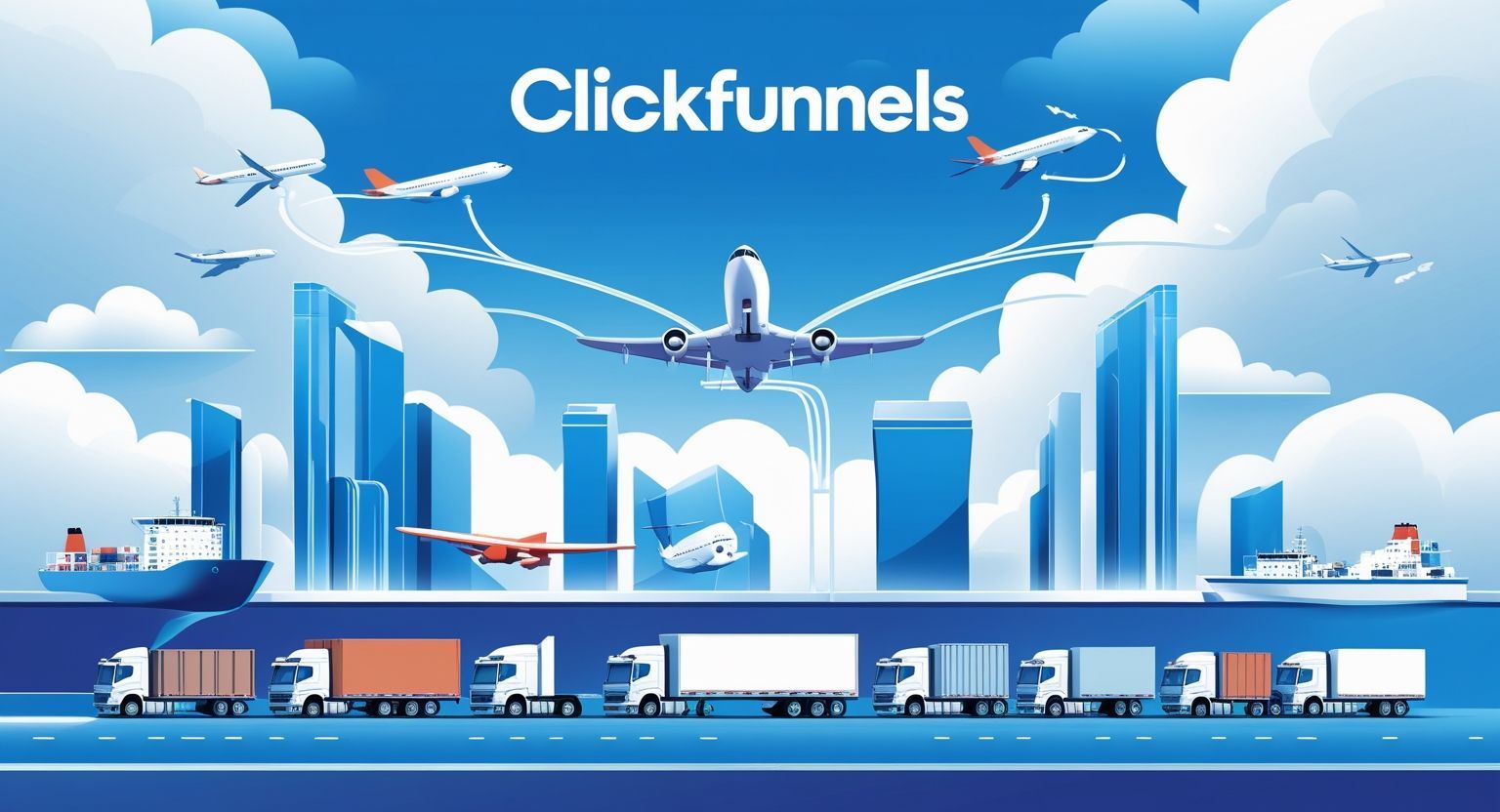SEO and Local Marketing for Transportation Companies
Does your transportation company want to capture more leads from fleet owners or trucking companies? With the right mix of SEO and local marketing, you can position your business in front of the decision-makers who matter most.
This guide from RKCM Marketing explores actionable strategies for optimizing your website and Google Business Profile.
Understanding SEO for Transportation Companies
What is SEO and Why is it Crucial for Trucking and Fleet Operators?
SEO is the process of improving your website’s visibility so it shows up at the top of search results for relevant queries.
For transportation providers, this means appearing when potential clients search for services like "fleet maintenance near me" or "trucking companies in Utah."
Why Transportation Companies Face Unique SEO Challenges
- Complex Service Offerings: Fleet and trucking companies often provide a wide range of services, which can make it hard to optimize pages for clear keywords.
- Location-Based Competition: Competing against local, regional, and even national transportation services requires a strong local SEO strategy.
- Mobile Search Volume: Many fleet managers and drivers research solutions on mobile devices, making mobile optimization a necessity.
Keyword Research Tips for the Transportation Sector
To attract the right audience, focus on keywords specific to your services and service areas, such as:
- fleet maintenance Utah
- commercial trucking services near me
- refrigerated transport fleet Salt Lake City
- best logistics company in Spanish Fork
Research tools like Google Keyword Planner or SEMrush will help you identify high-volume, low-competition search terms that decision-makers are actually typing in.
Combine broad terms (e.g., "trucking companies") with specific geo-targets (e.g., "in Provo, Utah") for best results.
Optimizing Your Website for Leads and Local Impact
Structure and User Experience
Your website is the digital front door for your business. Make sure it’s:
- Well-Organized and Easy to Navigate: Use clear menus and logical page structure. Feature important services on the homepage and offer simple contact options.
- Built for Speed: Rapid load times keep users engaged and positively impact your search ranking.
- Visually Appealing and Professional: High-quality images, a modern layout, and proof of expertise (like credentials, client logos, or case studies) inspire trust.
Mobile Optimization
With many decision-makers on the move, your site must shine on mobile devices:
- Use responsive website themes so content displays correctly on any screen.
- Keep forms short and easy to fill out.
- Test all service pages and contact forms on smartphones and tablets.
Strategic Content Creation
Great content leads to more web visits and better search rankings. Build out your site with:
- Blog Posts: Share trucking industry tips, respond to current regulations, or explain how your services solve fleet problems. Use keywords naturally.
- Case Studies: Show real-world outcomes you’ve delivered for other fleet or trucking clients. Data and numbers add credibility.
- Service Pages: Write a dedicated page for each major service ("Interstate Hauling," "Fleet Repair," etc.), explaining what makes your approach unique.
Regular content updates not only help with SEO but also establish your business as a trusted voice in transportation.
Get Found Locally With a Powerful Google Business Profile
Why Google Business Profile is Essential
When local fleet owners are searching for services, they often start with Google. Your Google Business Profile (GBP) can feature your business on Maps and in the Local Pack, drastically increasing your visibility.
An optimized GBP drives phone calls, website visits, and direct inquiries.
Step-by-Step Google Business Profile Optimization
Set Up and Verification
- Claim or create your profile at Google Business Profile.
- Verify your business through the options provided (postcard, phone, or email).
Optimize Every Section
- Categories: Choose the most specific categories (e.g., "Trucking Company," "Logistics Service," "Fleet Maintenance").
- Services: List all offerings, using keywords like “fleet repair” or “heavy haul trucking.”
- Description: Write a compelling summary with relevant keywords but keep it easy to read.
- Photos: Upload images of your location, vehicles, team, and completed projects. Real photos build trust.
Manage Reviews and Q&A
- Ask for Reviews: Encourage satisfied clients to leave honest feedback. Positive reviews boost rankings and credibility.
- Respond Promptly: Thank reviewers, address concerns, and engage with all feedback.
- Update Q&A Regularly: Answer common questions clearly and succinctly for quick client reference.
Local SEO Strategies That Move the Needle
Local Keyword Targeting for Transportation
Besides optimizing your website and GBP, focus on local search terms throughout your digital presence:
- Update meta descriptions and headers with city or region names.
- Mention service areas on your About or Contact pages.
- Build content around community events or regional regulations.
Build Local Citations
Consistency is key when listing your business on directories like Yelp, Yellow Pages, and industry-specific databases (such as Freight Brokers Directory). Always use the same name, address, and phone number (NAP) across these profiles.
Engage with the Local Community
Connect with potential clients by:
- Sponsoring local events or transportation forums.
- Participating in business associations or local chamber meetings.
- Sharing community involvement stories in blog posts or on social media.
These efforts build brand recognition and provide valuable backlinks for SEO.
Measuring Your Success and Getting More Leads
Track the KPIs That Matter
To measure the impact of your SEO and local optimization efforts, monitor:
- Website traffic from search
- Ranking positions for targeted keywords
- Number and quality of inbound leads
- Review ratings and volume
- Google Business Profile impressions and actions (calls, website clicks, direction requests)
Tools to Monitor Progress
Use these tools to keep your efforts on track:
- Google Analytics: Tracks website traffic and visitor behavior.
- Google Search Console: Monitors search rankings and site health.
- GBP Dashboard: Measures calls, clicks, and other engagement metrics.
- BrightLocal or Moz Local: Monitors citation accuracy and local rankings.
Refine Your Marketing Based on Data
Analyze your data monthly. If leads or rankings plateau, update your keyword targets, refresh underperforming content, or seek new directories for citation growth.
Why Transportation Businesses Trust RKCM Marketing
RKCM Marketing stands apart in a crowded industry. With over 35 years of collective experience and a deep track record in transportation and fleet sector marketing, we hand-tailor strategies that fit your goals.
Our commitment is to your ROI—we deliver comprehensive SEO, web design, and ad solutions under one roof, so you avoid the hassle (and inconsistency) of juggling multiple vendors.
Our promise is simple:
- Transparent communication and regular check-ins
- Clear reporting on progress
- Strategies customized to your business and region
Explore our case studies to see how we’re making a difference for transportation businesses just like yours.
Accelerate Growth With Proven SEO and Local Marketing
Winning more business in the transportation sector starts with putting your company in the spotlight where decision-makers are looking. Local SEO and a strong Google Business Profile will keep your phones ringing and your pipeline full.
Start now by reviewing your website, claiming your Google Business Profile, and enhancing your local search presence.
When you’re ready for personalized guidance and measurable results, reach out to RKCM Marketing.







